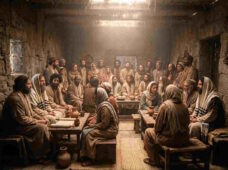The Lesson Behind Wool and Linen: Understanding God’s Distinctions truthsum.org
A common tactic used to dismiss God’s law is pointing to minor commands, like Deuteronomy 22:11: “You shall not wear cloth of wool and linen mixed together.” Critics often say, “You don’t strictly follow this, so how can the Sabbath or other commands still matter?” From there, they conclude that because Jesus “fulfilled the law,” all of God’s commands are optional.
At first glance, it may seem reasonable—but this reasoning is selective. Most who make this argument still uphold moral laws like prohibitions against murder, lying, or theft. The commands they dismiss are those that challenge modern practice: the Sabbath, clean and unclean foods, or biblical holy days.
Ironically, the very law they cite teaches the opposite of what they claim. The command against mixing wool and linen was given to instruct distinction and purity, not to be used as an excuse to blur God’s order. God established separation throughout creation—light from darkness, animals “after their kind,” and His people as holy and set apart.
This same principle applies to faith today. Biblical faith is trusting God enough to follow His instruction. When faith is redefined as opposed to obedience, or law is treated as mere legalism, the harmony God intended is lost. The wool-and-linen command becomes a metaphor: God calls His people to discern between what is holy and common, truth and error. Distinction is not division—it is order. Respecting these lines honors God’s design and preserves the integrity of His Word.
#GodsLaw #Deuteronomy2211 #SpiritualLessons #BiblicalDistinctions
Report Story





Leave Your Comment